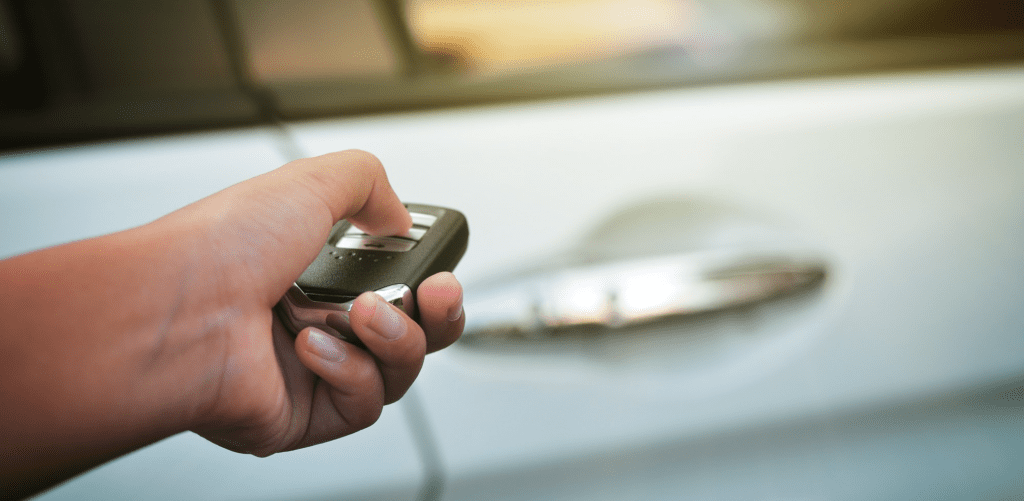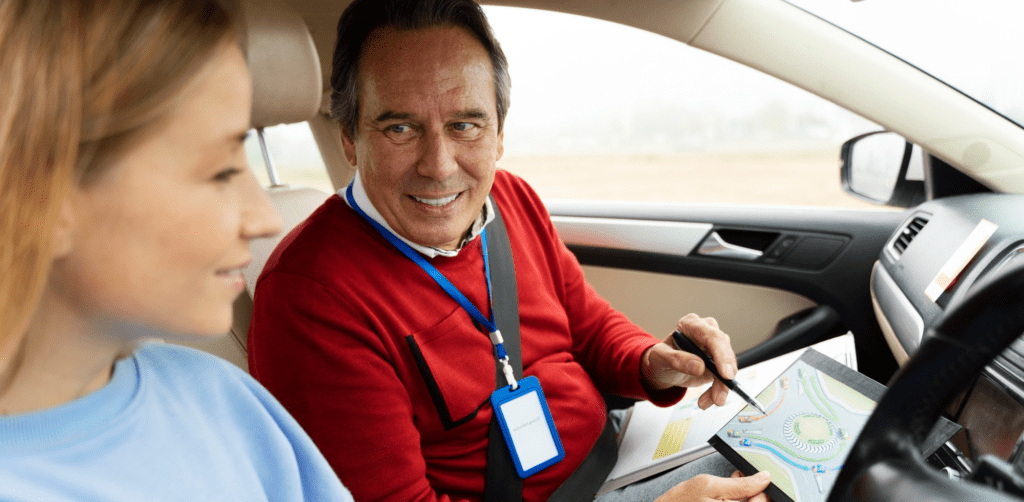
If you haven’t been behind the wheel since you got your driver’s licence, whether due to purchasing a new car or taking a necessary hiatus, getting back on the road can be an anxiety-inducing experience.
Even if it has only been a few months since you last drove, resuming driving after a break is not always a straightforward task. Although you may possess the legal qualifications to drive, the lack of practice can make it risky to simply hop into the car and start driving wherever you please.
It is essential to ensure that you are familiar with the latest traffic regulations and feel both comfortable and secure while driving.
- Resuming Driving after a Break: Rebuilding Skills and Confidence
- Getting back to basics
- Practice with family and friends
- Professional driving tuition
- Pass Plus: Enhancing Your Driving Skills
- Tips for Returning to Driving after a Break
Whether you are considering returning to driving after a break, there are several measures you can take to rebuild your confidence and prioritise safety on the roads. Continue reading to discover more!
Resuming Driving after a Break: Rebuilding Skills and Confidence
If it has been quite some time since you last sat behind the wheel, you’re not alone. In the UK, many qualified drivers take extended breaks from driving.
According to a survey conducted by Compare The Market in 2016, out of 3,002 licence holders, 2% hadn’t driven since passing their test, and 1 in 10 admitted to not driving for 12 months. Chances are, if you ask your friends or relatives, you’ll find others in a similar situation.

So, why do people take such lengthy breaks from driving? The reasons can vary from driver to driver. In the aforementioned survey, qualified drivers who had taken a prolonged break cited the following reasons:
- 37% mentioned the high cost associated with driving.
- 25% lacked confidence in getting back on the road.
- 20% admitted they hadn’t considered the costs of driving before obtaining their licence.
- 9% felt pressured to pass the driving test at a young age.
These reasons are understandable. If you pass your driving test at a young age, such as 17, it’s unlikely that you’ll have the financial means to purchase a car, pay for insurance, and cover fuel costs.
By the time you can afford these expenses, years may have passed, and the thought of returning to driving can be anxiety-inducing.
The same applies to those who obtain a driving licence without a pressing need to drive. For instance, if you live in a city centre, you likely have everything within walking distance, eliminating the necessity for regular driving.
Now, what can you do to regain your driving skills and confidence when returning to driving after a break?
-
Refamiliarise Yourself with the Rules of the Road: Traffic regulations may have changed since you last drove. Take the time to review the latest rules and updates to ensure you’re up to date.
-
Consider Refresher Lessons: Booking a few refresher driving lessons with a professional instructor can be immensely helpful. They can assess your skills, provide guidance, and help you regain confidence behind the wheel.
-
Practice in Low-Traffic Areas: Start by driving in less congested areas or during quieter times of the day. This allows you to ease back into driving without feeling overwhelmed.
-
Take It Slow: Gradually increase your driving distance and exposure to more challenging road conditions as you regain confidence. Pushing yourself too quickly can lead to added stress and anxiety.
-
Drive with a Familiar and Supportive Companion: Having a trusted friend or family member accompany you during your initial drives can provide emotional support and reassurance.
-
Consider Advanced Driving Courses: These courses offer additional training and techniques to improve your driving skills, boost confidence, and enhance safety on the road.
Remember, everyone’s journey back to driving is unique, and it’s essential to prioritise your comfort and safety. Be patient with yourself and take the necessary steps to rebuild your skills and confidence gradually.
Getting Back to Basics
Even if you hold a valid driving licence and have the legal right to drive, resuming driving after a prolonged break is not as straightforward as it may seem.
Whether it has only been a few months or several decades since you were last behind the wheel, the ever-evolving rules of the road require you to ensure your theoretical knowledge is up to date.

Furthermore, taking a break from driving, regardless of its duration, can leave you feeling uncertain about your driving abilities, necessitating efforts to regain your confidence.
Now, let’s delve into what you can do to navigate this process effectively…
Brushing Up on Theoretical Knowledge
Driving safely necessitates a solid understanding of the Highway Code, road signs, and the various rules of the road. With constant changes on the road, such as the introduction of smart motorways and learners now allowed on motorways, it’s crucial to update your knowledge before getting back behind the wheel.
Download Highway CodeThere’s a valid reason why the DVSA (Driver and Vehicle Standards Agency) requires learners to retake the theory test if they haven’t passed their driving test within two years. This is because theoretical knowledge serves as the foundation for safe driving.
Although you can’t retake the theory test, there are numerous alternative methods to test your knowledge. We recommend exploring our comprehensive guide to theory test revision resources.

It provides a wealth of information and quizzes to help you refresh your understanding and ensure familiarity with crucial aspects such as motorway rules, road and traffic signs, hazard awareness, and much more.
Putting Your Skills to the Test
If you’ve been off the road for just a few months and feel a bit rusty, starting your driving journey in a less congested area can help you regain your confidence.

Empty car parks or quiet residential estates are excellent examples of such locations.
Before you embark on your drive, it’s advisable to spend around half an hour acquainting yourself with the car you’ll be driving. Then, head to a familiar area and test your skills in areas such as clutch control and manoeuvres.
For some drivers, this simple approach works well, as their muscle memory quickly kicks in when they return to driving after a break. However, others may find themselves feeling more uncertain behind the wheel than they did when they first started learning to drive.
If practicing alone doesn’t alleviate your nerves or if you feel that your driving skills have dulled, you may consider practicing with family and friends or seeking professional tuition to enhance your abilities.
Practice with family and friends
Having a supportive family member or friend in the passenger seat can work wonders for boosting your confidence. They can help keep your nerves in check through conversation or offer helpful tips during the practice sessions.

However, if you plan to practice with someone, it’s important to ensure you have the appropriate insurance coverage for the vehicle you’ll be driving. Additionally, it’s advisable to start by driving in familiar areas and avoid rush hour traffic until you feel more at ease behind the wheel.
On the other hand, having a relative or friend accompany you in the car can sometimes have an adverse effect. Their teaching style may not align with your preferences, or their presence might inadvertently add pressure to your driving experience.
If this type of practice is not contributing positively to your nerves or lack of confidence, it may be time to consider the next step.
Professional Driving Tuition
One of the most effective ways to regain your confidence and bring it back to the level you had when you first passed your driving test is by taking a refresher course with a DVSA-approved instructor.

By doing so, you can refresh your driving knowledge and receive valuable guidance from an experienced instructor who specialises in teaching individuals how to drive.
It’s highly likely that the instructor you choose has helped numerous people in situations similar to yours, achieving excellent results.
Rated Driving offers refresher driving lessons for both learners and qualified drivers. We work with over 1200 experienced DVSA-approved instructors who can provide you with a confidence boost and help you sharpen your skills.
With their guidance, you’ll soon be able to drive independently without a worry in the world. If you’re interested in getting started, simply click the button below.
Book nowPass Plus: Enhancing Your Driving Skills
If a refresher course alone isn’t sufficient for your needs, another option to consider is the Pass Plus course. This advanced driving program is typically taken shortly after passing the driving test, but it can also be highly beneficial for individuals seeking to refine their driving skills and overcome any nervousness they may have.

The Pass Plus course is designed to equip you with the necessary skills to confidently handle various road conditions. It offers a valuable confidence boost for driving independently.
During the Pass Plus course, you will be guided by a DVSA-approved instructor who will closely monitor your progress. Upon successfully demonstrating competence in all the modules covered, you will receive a Certificate of Completion. The course encompasses six modules, which include:
- Town driving
- Rural driving
- All-weather driving
- Night driving
- Driving on dual carriageways
- Motorway driving
If you’re interested in taking the Pass Plus course, you can enroll with a Rated Driving instructor who offers this program.
Tips for Returning to Driving after a Break
If you’re feeling uncertain about your driving abilities after a break, here are some helpful tips to get you back into driving shape and boost your confidence:
Minimise Distractions
Avoid unnecessary distractions while driving. If talking to passengers or changing music hampers your concentration, consider driving alone or kindly ask your passengers to refrain from engaging in conversation. Remember, using your mobile phone while driving is not only dangerous but also illegal.
Gradually Progress
Take your time and pace yourself when it comes to challenging road conditions. If you don’t feel ready for complex scenarios like dual carriageways, roundabouts, or motorways just yet, stick to quieter roads initially.
Build your confidence gradually and challenge yourself as you become more comfortable. Using a sat nav to explore unfamiliar areas can be a good way to gradually expand your driving experiences.
Practice Regularly
Consistent practice is key to rebuilding your driving skills. The more you practice, the more your muscle memory will kick in, making driving feel more natural.
Try to drive regularly, even if it’s for short durations. It’s also beneficial to practice driving at different times of the day, such as during rush hour or at night, to get accustomed to various traffic volumes. If you ever feel overwhelmed, find a safe place to pull over and take a few moments to collect your thoughts.
Know Your Vehicle
Whether you’re driving your own car or someone else’s, make sure you are familiar with its features and functions. Read the car’s user manual to understand its specific operations.
Take the time to learn where important controls are located, such as hazard lights, wipers, and fog lights. Being confident with your vehicle’s controls will help you focus on the road.
Consider P Plates
Using P plates, even if you passed your driving test years ago, can be beneficial. They indicate to other drivers that you are still gaining confidence on the road. P plates encourage cautious behaviour from other road users, reducing the likelihood of tailgating or aggressive manoeuvres.
Be Patient with Yourself
Rebuilding confidence may take time, and that’s perfectly normal. Instead of worrying about how long it will take to overcome your nerves completely, focus on your daily driving practice.
Whether you practice with family, friends, or a professional driving instructor, remember that progress is gradual. Every journey contributes to your improvement, so trust that you will regain your confidence over time.
Keep these tips in mind, stay patient, and be consistent with your efforts. With practice and time, you’ll gradually regain your driving skills and feel more comfortable behind the wheel.


